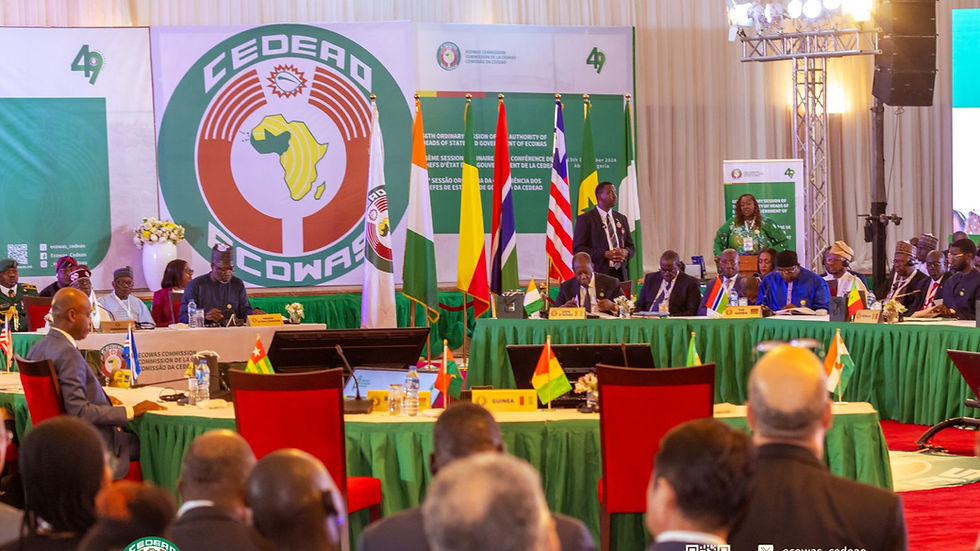The African Union Second Meeting of the Specialised Technical Committee on Health, Population And Dr
- WADPN

- May 2, 2017
- 3 min read

The Second Session of The Specialised Technical Committee on Health, Population and Drug Control (STC-HPDC-2) of the African Union (AU) was held in Addis Ababa, Ethiopia, from the 20-24th March 2017 under the theme “ Youth, Health and Development: Overcoming the Challenges towards Harnessing the Demographic Dividend”. The youth population is growing rapidly in Africa and it is estimated that 68% of the population on the continent are under age 30.
Hence, the AU Head of States and Government at their 26th Ordinary summit in Addis Ababa on 31st January, 2016 consider as a priority, and as also articulated in the AU Agenda 2063, critical investment to unleash the full potential of African youths to boost socioeconomic development. Within this context, drugs and drug control effort as it affects youth development is now being considered.
The STC-HPDC represents a move by the AU to establish synergies among the health, population and drug control sectors and this is highly commendable. It represents a progressive thinking on how to better address drug use in Africa and especially among the youth. It is obvious that the global drug problem disproportionately affects the youth and the implementation of repressive policies has further created a cycle of marginalization, social exclusion, deprivation in families and communities. Criminalization of young people over drug use has resulted into a lot of human rights violation, denial of health services, loss of job, loss of school admission, torture, vulnerability to criminal groups while in detention and high rate of recidivism.
Unfortunately this approach has not in any form reduced the rate of drug use among young people in Africa. The Ministers report adopted at the STC-HPDC-2 took note of the challenges caused by criminalization of young people who use drugs rather than providing alternatives and made some recommendations such as:
Member States to respect justice for Children by decriminalizing status offence and minor drug offences for children and youth; introducing alternatives to prosecution and imprisonment of children and Youth.
Member States to develop and adopt national drug policies that respect human rights, protect the health, safety and well-being of individuals, families, vulnerable members of society, communities and society as a whole in accordance with the UNGASS outcome 2016.
To ensure that people who use drugs are not punished but provided with access to treatment and psychosocial services
To recognize the special risky conditions that young women and girls face regarding drug use, HIV and violence and their special vulnerabilities to drug use
To recognize that imprisonment of drug users to do not reform but it rather perpetuates criminal activities and therefore consider to reform the penal code and legislation
These recommendations are laudable and reflect a departure from what currently exist both in policy and practice in many African countries. It has therefore placed the burden for compliance and reform in the hand of member States. However, there are three critical issues that drug policy reform advocates will need to keep working at. One, because the recommendations are not legally binding there are member states who will want to stick to the ‘Hard-line” drug policy response.. Second, while many member states will welcome the recommendations and favors the public health approach to drug use, it seems not everyone understands what a ‘public health’ response should be.
There are possibilities of having arguments such as using arrest to force people into treatment, creating detention centers where drug users are locked up and then offered treatment or use of detention centers as rehabilitation rooms especially in countries where adequate treatment infrastructures are lacking, and there are really many of such. These arguments will arise based on existing misconceptions about drug use and drug dependence. The belief that everyone who uses drug requires treatment, of which is not true. This may also be as a result of desire to continue the use of criminal justice system to address drug use. Therefore engaging with member states on what a “Public Health Approach to Drug Use” really means and the context within which such strategy can effectively be implemented will be important.
It will also be important to make clear and emphasize that drug use control among young people within the African continent should have a development outlook, an opportunity that criminalization doesn’t present. The third and last point I think policy reform advocate need to take further is how to “Popularize” the above policy recommendations among member states. There is no doubt that the AU commission in recent years has been providing the required leadership in terms of evidence-based drug policy recommendations to member states. But now is the time that those recommendations translate into practice. The AU STC-HPDC-2 Ministers report has provided a tool for engagement at country levels and civil society organizations should make the best out of it to achieve the needed drug policy reform within the African continent.
By Adeolu Ogunrombi, The regional Coordinator of the West Africa Drug Policy Network and a Commissioner of the West Africa Commission on Drugs.




Comments